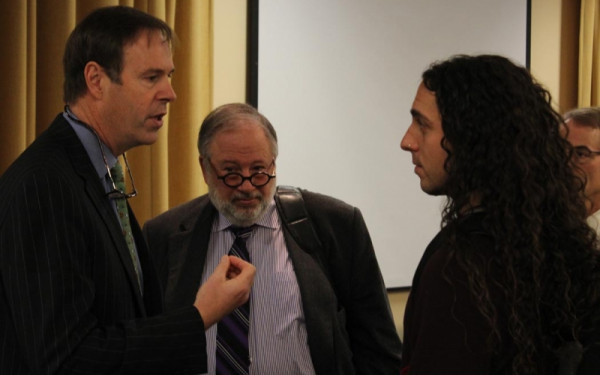Concordia’s Budget, Take One
Funding Gap Leaves ConU CFO Looking For Cuts
In a climate of uncertain government funding, Concordia is working to balance the books following cuts and cancelled tuition hikes.
At the last Board of Governors meeting before summer break, Concordia Chief Financial Officer Patrick Kelley presented the budget for this academic year. But if this year is anything like last year, it may only be the first of many he’ll need to prepare.
Due to changing information from the provincial government last year, Concordia’s 2012-2013 budget needed to be revised four times.
“We can’t include numbers that come from a press release,” said Kelley at the June 7 meeting, referring to the Parti Québécois’ public statements pledging to narrow what Quebec university administrators say is a funding gap.
When the PQ formed a minority government after defeating Jean Charest’s Liberals last year, party leader Pauline Marois pledged to cancel the 80 per cent increase in tuition for students stretched over seven years before she was even sworn in. The announcement meant a loss of an estimated $4 million in revenue for Concordia for the 2012-2013 school year.
Then, in December, with most of the academic year behind them, Quebec universities faced an unexpected $124-million cut in grant money, resulting in a $13.2-million loss for Concordia.
This left Concordia’s Board with little choice but to approve a deficit of up to $7.5 million—the third-highest in Concordia’s history—when a surplus of $600,000 had been predicted for the 2012-2013 academic year.
Kelley cautioned that things could change when presenting the budget for the 2013-2014 year, and that budget reduction targets were on the assumption that there would be no further cuts to their operating grant, which will make up 76.33 per cent of Concordia’s revenue, up from 63 per cent last year.
The current budget sees a 2.5 per cent ($5.7 million) cut to the academic sector, and a 6.81 per cent ($7.49 million) cut to all others, including the services portfolio, which oversees facilities management and human resources. Concordia’s academic sector makes up more than two-thirds of the university’s budget.
For students, these cuts mean a reduced number of courses and fewer courses available in multiple semesters.
“Every area of the university will feel something—you can’t go through what we’ve gone through in the last year and a half and not have an impact,” Concordia President Alan Shepard told The Link last spring.
At the Summit on Higher Education in February, the provincial government announced tuition would no longer be frozen, and instead indexed to the rise in average household disposable income.
This amounts to a 2.6 per cent increase in tuition this year, which translates to about $1.1 million for Concordia.
While Concordia has a high number of international students, who bring in far more tuition than Quebec residents, that money is redistributed to other post-secondary institutions in the province.
In his presentation to the Board of Governors, Kelley said that this year $45 million of tuition from international and non-Quebec students goes through this process, with Concordia expected to get 10 to 11 per cent back.
It was suggested at the meeting that tuition be lowered at Concordia to attract more international and out-of-province students, but Kelley said “discounting tuition to siphon students from other universities is a slippery slope,” in that it can lead to even less revenue for Quebec universities as a whole.

_820_541_90.jpg)
_600_832_s.png)

_600_375_90_s_c1.jpg)

web_600_375_90_s_c1.jpg)
